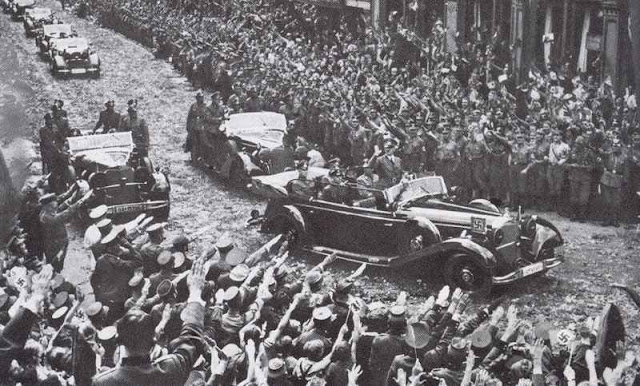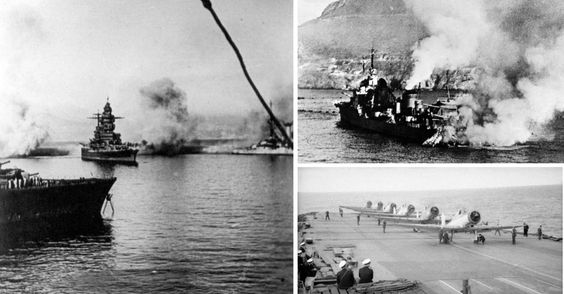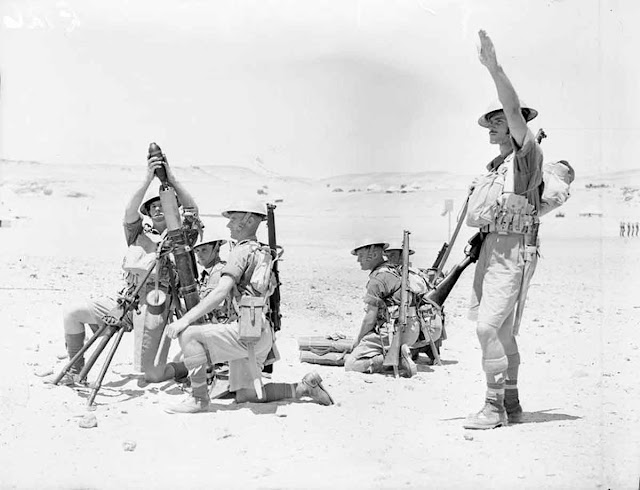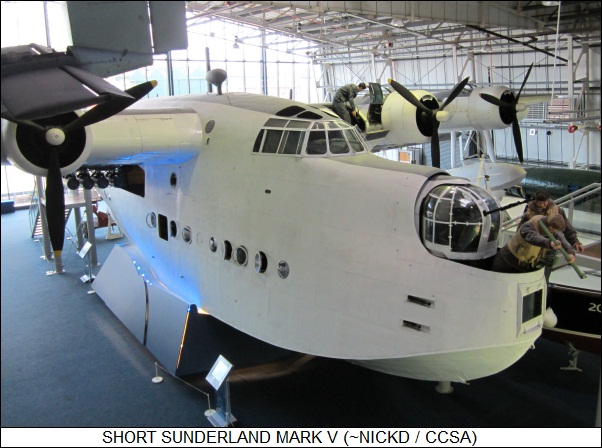Western Front: The British on 6 July 1940 continue with their "strategy of the periphery," wherein they launch small spy and commando raids against the German forces on the Continent rather than try to confront them directly. Operation Anger sends 2nd Lieutenant Hubert Nicolle, a native Guernseyman, back to his home island. A Royal Navy submarine drops him off just offshore, and he rows in on a canoe. He is there on a fact-finding mission.
European Air Operations: The Luftwaffe raids South Devon, but causes few casualties. A raid on the southeast coast is driven off and a Heinkel 111 shot down offshore by a Spitfire. The day includes the first raid on Plymouth.
RAF Bomber Command sends 19 bombers against Belgian airfields and ports.
Battle of the Atlantic: U-30 torpedoes and sinks 3,154-ton Egyptian freighter MV Angele Mabro (Kapitänleutnant Fritz-Julius Lemp) in the Bay of Biscay. There are no survivors. U-30 then heads to Lorient, France, becoming the first U-boat to dock there.
U-34 (Kapitänleutnant Wilhelm Rollmann) torpedoes and sinks 4,543-ton Estonian freighter MV Vapper in the southwest approaches. There are 32 survivors, and one crewman perishes. U-99 had been tailing the Vapper for almost two hours and sees the attack.
British submarine HMS Shark suffers tremendous damage by a Luftwaffe attack, making it unable to steer or dive. The Kriegsmarine captures it and takes it in tow, but scuttling charges set by the crew sink it before it makes landfall. There are 33 crewmen taken prisoner, while three perish.
Kriegsmarine patrol boat UJ-D hits a mine laid by Royal Navy submarine HMS Narwhal and sinks.
German aircraft carrier Graf Zeppelin is towed from Kiel to Gotenhafen (Gdynia) to avoid air attack in Operation Zugvogel. The ship is incomplete and work has been stopped on it.
Battle of the Mediterranean: The British intercept a message from Vichy Admiral Estava that French battleship Dunkerque had only suffered minor damage in the 3 July 1940 Force H attack on Mers el Kebir. Admiral Somerville thus receives orders for another attack, Operation Lever. British carrier HMS Ark Royal thus sends off a raid using Swordfish torpedo bombers to do more damage to it. They score hits on the French battleship Dunkerque, causing major damage when auxiliary ship Terre Neuve next to it is hit and explodes. The French suffer 8 deaths from the Terre Neuve and 154 casualties on the Dunkerque.
At Malta, there is an air raid at 08:10, but the bombers turn back without making a raid. There is another raid at 21:10, and this time the raiders drop bombs near the dockyards and on Fort St. Angelo. There is a very little warning, and two dockyard workers are killed and nine wounded. The Regia Aeronautica loses two planes. There also is a raid on the workers' community at Paola and nearby areas.
The demobilization of the French ships at Alexandria continues.
An Italian convoy sets sail from Naples for Benghazi, accompanies by four torpedo boats.
North Africa: The Italians raid Matruh.
At first light, a Royal Navy cruiser force (cruisers HMS Capetown and Caledon and destroyers HMS Janus, Juno, Ilex, and Imperial) attack Bardia, sinking Italian freighter Axum and damaging another freighter. The Regia Aeronautica attacks the retreating squadron at 08:20 without scoring any hits.
German Government: Adolf Hitler returns to Berlin for the first time since the beginning of the Battle of France on May 10. There are state-ordered acclamations and he addresses a large crowd from his balcony with Hermann Goering. There is genuine public adoration, it is not all just state-mandated. Some point to this day as Hitler's moment of greatest public triumph; if he had just stopped here, history would take a completely different political view of him with the huge caveat of the developing Holocaust.
German Military: SS officer Walter Schellenberg begins compiling a handbook for forces occupying England, including a "Black List" of who is to be arrested. This list is full of celebrities, including Virginia Woolf, H.G. Wells, Noël Coward, and the deceased Sigmund Freud. Many British institutions are closed, including Oxford and Cambridge.
US Military: Col. Simon Bolivar Buckner Jr takes the command of Alaska Defense Force.
Australian Homefront: Story Bridge opens in Brisbane. Construction of the bridge began in 1935 and it was opened on the 6th of July, 1940 by the Governor of Queensland, Sir Leslie Orme Wilson.
German Homefront: The Reich newspapers are full of adulation and superlatives for Hitler, terming him the "Lord of battle," "Rouser out of Stupor," "Shaper of the New Europe" and so forth.
July 1940
July 1, 1940: Vichy France
July 2, 1940: Arandora Star
July 3, 1940: Operation Catapult at Mers El Kébir
July 4, 1940: Romania In Crisis
July 5, 1940: The Five Freedoms
July 6, 1940: Hitler's High Point
July 7 1940: Dakar And Ringo
July 8, 1940: Tea Rationing in England
July 9, 1940: Battle of Calabria
July 10, 1940: Battle of Britain Begins
July 11, 1940: "Nous, Philippe Petain"
July 12, 1940: Enter Laval
July 13, 1940: German Surface Raiders Attack!
July 14, 1940: Bastille/Mourning Day
July 15, 1940: Tallest Man Dies
July 16, 1940: Plans for Sea Lion
July 17, 1940: Burma Road Closed
July 18, 1940: FDR Runs Again
July 19, 1940: Last Appeal To Reason
July 20, 1940: First Night Fighter Victory
July 21, 1940: Soviets Absorb Baltic States
July 22, 1940: First RAF Night Fighter Victory
July 23, 1940: Invasion False Alarm
July 24, 1940: The Meknés Incident
July 25, 1940: Black Thursday for RAF
July 26, 1940: Capture The Duke?
July 27, 1940: What's Up, Doc?
July 28, 1940: Destroyers Pulled From Dover
July 29, 1940: Barbarossa On The Burner
July 30, 1940: Hitler Delays Sealion
July 31, 1940: Bloody Wednesday of Olkusz
2020
European Air Operations: The Luftwaffe raids South Devon, but causes few casualties. A raid on the southeast coast is driven off and a Heinkel 111 shot down offshore by a Spitfire. The day includes the first raid on Plymouth.
RAF Bomber Command sends 19 bombers against Belgian airfields and ports.
Battle of the Atlantic: U-30 torpedoes and sinks 3,154-ton Egyptian freighter MV Angele Mabro (Kapitänleutnant Fritz-Julius Lemp) in the Bay of Biscay. There are no survivors. U-30 then heads to Lorient, France, becoming the first U-boat to dock there.
U-34 (Kapitänleutnant Wilhelm Rollmann) torpedoes and sinks 4,543-ton Estonian freighter MV Vapper in the southwest approaches. There are 32 survivors, and one crewman perishes. U-99 had been tailing the Vapper for almost two hours and sees the attack.
British submarine HMS Shark suffers tremendous damage by a Luftwaffe attack, making it unable to steer or dive. The Kriegsmarine captures it and takes it in tow, but scuttling charges set by the crew sink it before it makes landfall. There are 33 crewmen taken prisoner, while three perish.
Kriegsmarine patrol boat UJ-D hits a mine laid by Royal Navy submarine HMS Narwhal and sinks.
German aircraft carrier Graf Zeppelin is towed from Kiel to Gotenhafen (Gdynia) to avoid air attack in Operation Zugvogel. The ship is incomplete and work has been stopped on it.
 |
| The 6 July 1940 headline in the Montana Standard is "Britain and France virtually are at war." |
At Malta, there is an air raid at 08:10, but the bombers turn back without making a raid. There is another raid at 21:10, and this time the raiders drop bombs near the dockyards and on Fort St. Angelo. There is a very little warning, and two dockyard workers are killed and nine wounded. The Regia Aeronautica loses two planes. There also is a raid on the workers' community at Paola and nearby areas.
The demobilization of the French ships at Alexandria continues.
An Italian convoy sets sail from Naples for Benghazi, accompanies by four torpedo boats.
North Africa: The Italians raid Matruh.
At first light, a Royal Navy cruiser force (cruisers HMS Capetown and Caledon and destroyers HMS Janus, Juno, Ilex, and Imperial) attack Bardia, sinking Italian freighter Axum and damaging another freighter. The Regia Aeronautica attacks the retreating squadron at 08:20 without scoring any hits.
 |
| Berlin, 6 July 1940. |
German Military: SS officer Walter Schellenberg begins compiling a handbook for forces occupying England, including a "Black List" of who is to be arrested. This list is full of celebrities, including Virginia Woolf, H.G. Wells, Noël Coward, and the deceased Sigmund Freud. Many British institutions are closed, including Oxford and Cambridge.
US Military: Col. Simon Bolivar Buckner Jr takes the command of Alaska Defense Force.
Australian Homefront: Story Bridge opens in Brisbane. Construction of the bridge began in 1935 and it was opened on the 6th of July, 1940 by the Governor of Queensland, Sir Leslie Orme Wilson.
German Homefront: The Reich newspapers are full of adulation and superlatives for Hitler, terming him the "Lord of battle," "Rouser out of Stupor," "Shaper of the New Europe" and so forth.
 |
| A Bf 110C "Zerstörer" with sharks mouth paint, July 1940. This is an early instance of this later-common paint scheme. |
July 1940
July 1, 1940: Vichy France
July 2, 1940: Arandora Star
July 3, 1940: Operation Catapult at Mers El Kébir
July 4, 1940: Romania In Crisis
July 5, 1940: The Five Freedoms
July 6, 1940: Hitler's High Point
July 7 1940: Dakar And Ringo
July 8, 1940: Tea Rationing in England
July 9, 1940: Battle of Calabria
July 10, 1940: Battle of Britain Begins
July 11, 1940: "Nous, Philippe Petain"
July 12, 1940: Enter Laval
July 13, 1940: German Surface Raiders Attack!
July 14, 1940: Bastille/Mourning Day
July 15, 1940: Tallest Man Dies
July 16, 1940: Plans for Sea Lion
July 17, 1940: Burma Road Closed
July 18, 1940: FDR Runs Again
July 19, 1940: Last Appeal To Reason
July 20, 1940: First Night Fighter Victory
July 21, 1940: Soviets Absorb Baltic States
July 22, 1940: First RAF Night Fighter Victory
July 23, 1940: Invasion False Alarm
July 24, 1940: The Meknés Incident
July 25, 1940: Black Thursday for RAF
July 26, 1940: Capture The Duke?
July 27, 1940: What's Up, Doc?
July 28, 1940: Destroyers Pulled From Dover
July 29, 1940: Barbarossa On The Burner
July 30, 1940: Hitler Delays Sealion
July 31, 1940: Bloody Wednesday of Olkusz
2020










